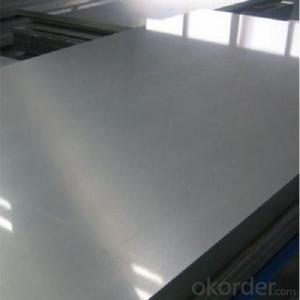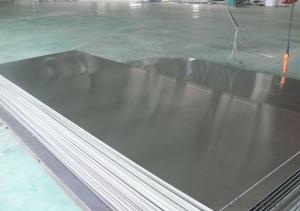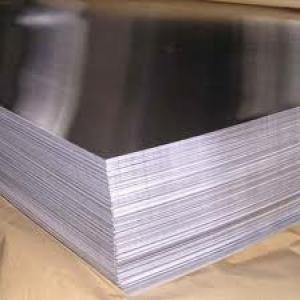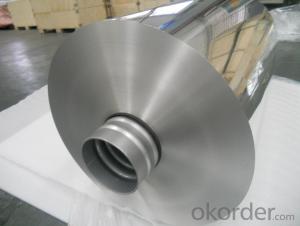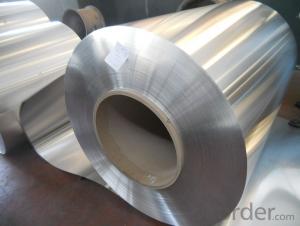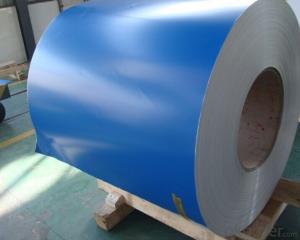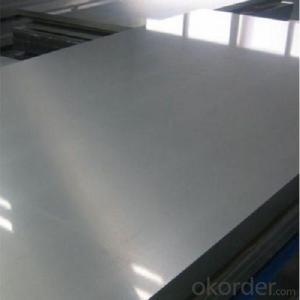Brushed Aluminium Sheet for Mobile Phone Shell
- Loading Port:
- Shanghai
- Payment Terms:
- TT OR LC
- Min Order Qty:
- 2.5
- Supply Capability:
- 5000 m.t./month
OKorder Service Pledge
OKorder Financial Service
You Might Also Like
Item specifice
Brushed Aluminium Sheet for Mobile Phone Shell
l Product Information
1) alloy number 1050 1060 1100 1200 3003.
2) temper available O H12 H14 H16 H18.
3) application: cookware utensil and basin.
4) thickness: 0.2-6.0mm.(+/-0.02mm)
5) diameter: 120-1360mm.(+/-0.5mm)
6) production treatment: cold rolled or hot rolled.
7) surface appearance: flat clean surface no whole, scratch, oil dirty and oxidation.
8) cutting edge: neat cutting edge no burrs.
Chemistry Composition & Mechanical Properties
l Packaging & Delivery
Packaging detail: Sea Worthy Wooden pallet
Delivery detail: About 25 days
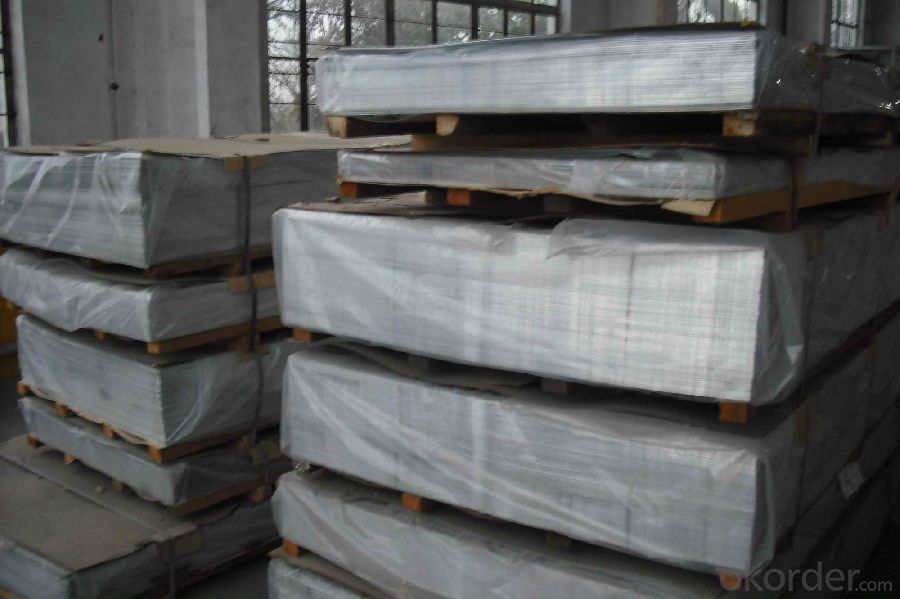
l Company Profile
CNBM International Corporation, China National Building Materials (Group) Corporation, is one of the largest companies in China building material & equipment industry, with 42,800 employees and sales in 2005 of US Dollar 4.395 billion. In 2006, China National Building Material Company Limited was listed on Hong Kong Stock Market with the stock code as 3323.
Aluminium Products have been our featured products. We have specialized in aluminium products for about a decade and have sold our good quality aluminium products to the worldwide.
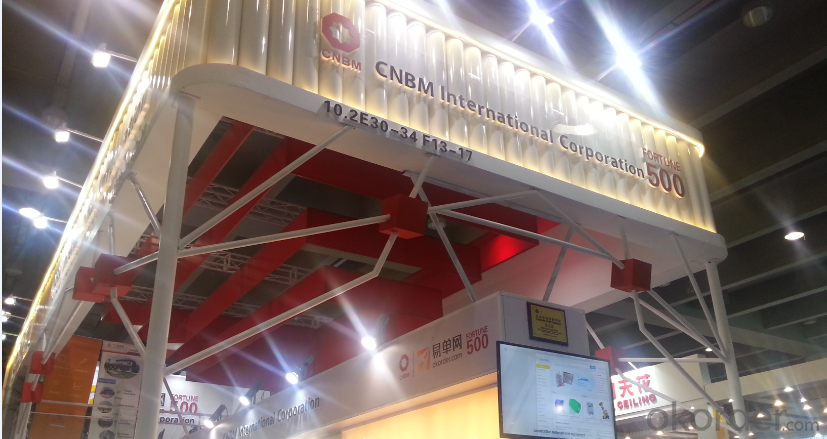
l CNBM World Wide
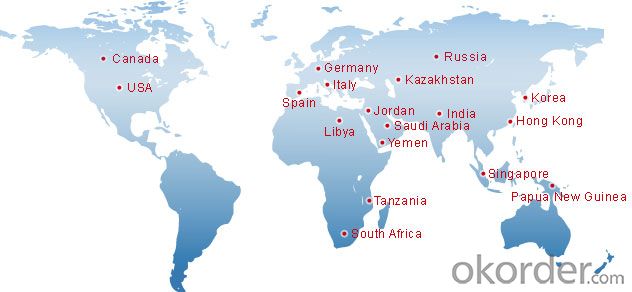
l Product Images
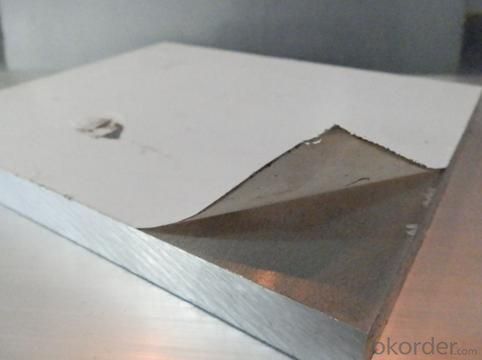
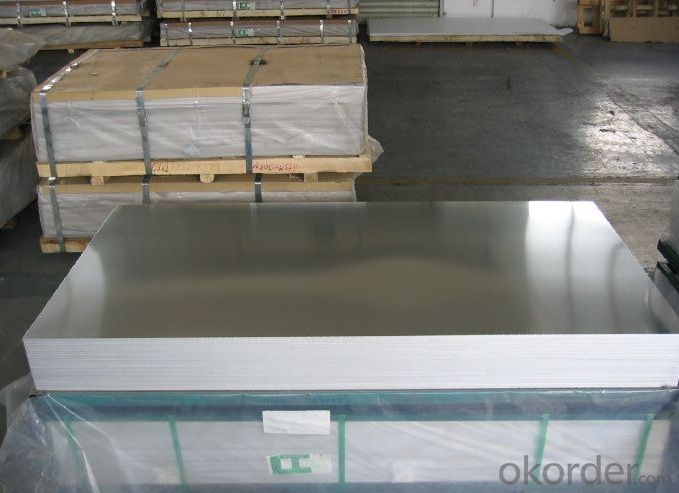
l Certificates
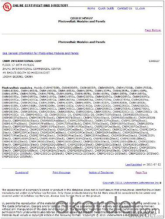
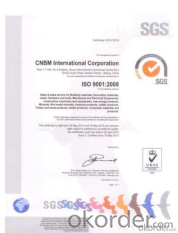
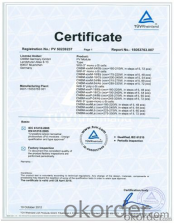
l FAQ
Q: Do you provide free samples?
A: Yes, free samples will be sent to you on freight at destination.
Q: Can I get your latest products catalogue?
A: Yes, it will be sent to you in no time.
Q: What is the MOQ?
A: 2.5 tons
Q: What are your payment terms?
A: We accept L/C, T/T.
- Q:I know aluminium forms a protective layer of aluminum oxide and hence water does not corrodes it easily.However, since the oxide is amphoteric, won't it react with acids and subsequently be dissolved?What is the main reason aluminium cans are used?
- Because of the aluminum chemical properties. Aluminum Oxide (Al2O3) is an extremely hard and compact material, so when the metal is exposed, it gets a very thin coat of Al2O3 that has a 9 hardness (only diamond is harder), that protects the rest of the metal from the atmosphere. Also, you should question if the phosphoric acid actually attacks aluminum, that is because that acid is found in Pepsi and coke..., BUT, as far as i know cans have a little plastic coat inside..., so the liquid does not get in touch with the aluminum.
- Q:Are aluminum sheets resistant to UV radiation?
- Yes, aluminum sheets are generally resistant to UV radiation. Aluminum is known for its excellent corrosion resistance, and this extends to its resistance to UV radiation as well. The oxide layer that naturally forms on the surface of aluminum provides a protective barrier against the harmful effects of UV rays. This oxide layer acts as a shield, preventing the aluminum from deteriorating or fading when exposed to sunlight or other sources of UV radiation. However, it is important to note that prolonged exposure to intense UV radiation may eventually cause some degradation or discoloration of the aluminum surface. Therefore, while aluminum sheets are highly resistant to UV radiation, it is still advisable to provide additional protection, such as coatings or paint, for applications that require extended exposure to harsh UV environments.
- Q:How thick are aluminum sheets commonly available?
- Depending on the purpose and application, aluminum sheets are typically available in different thicknesses. The most frequently found aluminum sheet thicknesses range from 0.025 inches (0.63 mm) to 0.125 inches (3.18 mm). Nevertheless, there are also thinner and thicker aluminum sheets obtainable, with some being as thin as 0.016 inches (0.4 mm) and others as thick as 0.25 inches (6.35 mm) or possibly more. The specific thickness needed will be contingent upon the particular project or industry application.
- Q:What is the fatigue strength of aluminum sheets?
- The fatigue strength of aluminum sheets depends on various factors such as the alloy, thickness, and manufacturing process. Generally, aluminum alloys have good fatigue strength compared to other materials. However, the exact fatigue strength can vary significantly and must be determined through specific testing and analysis for each particular aluminum sheet.
- Q:Do 101 aluminum sheets have any specific fire resistance properties?
- Indeed, specific fire resistance properties are possessed by a total of 101 aluminum sheets. With a melting point of 660 degrees Celsius (1220 degrees Fahrenheit), aluminum can endure high temperatures before the onset of melting. Furthermore, due to its low combustion point, aluminum does not easily ignite. In the event of a fire, the aluminum sheets serve as a barrier that hinders the spread of flames. Furthermore, the burning of aluminum results in the formation of a protective oxide layer on its surface, which effectively impedes the advancement of the fire. Nevertheless, it is important to acknowledge that although aluminum exhibits fire-resistant characteristics, it is not entirely impervious to fire and can still suffer damage or deformation when subjected to intense heat.
- Q:Can 101 aluminum sheets be used in electrical or electronic components?
- Yes, 101 aluminum sheets can be used in electrical or electronic components. Aluminum is a versatile metal that possesses excellent electrical conductivity and is widely used in various electrical and electronic applications. It is commonly used as a conductor in power transmission lines, electrical cables, and wiring. Additionally, aluminum sheets can be used in the manufacturing of electronic components such as heat sinks, circuit boards, and enclosures due to their lightweight, corrosion-resistant, and thermally conductive properties. However, it is important to note that the specific grade and alloy of aluminum, as well as other factors such as thickness and surface treatment, may also influence its suitability for certain electrical or electronic applications.
- Q:Are the aluminum sheets suitable for manufacturing heat exchangers?
- Yes, aluminum sheets are suitable for manufacturing heat exchangers. Aluminum is a lightweight and highly conductive material, making it an ideal choice for heat transfer applications. Its excellent thermal conductivity allows for efficient heat transfer, resulting in effective cooling or heating processes. Additionally, aluminum is corrosion-resistant, which is crucial for heat exchangers that come in contact with various fluids. The malleability and formability of aluminum sheets also make them easy to shape into the required designs for heat exchanger components. Overall, aluminum sheets offer several advantages for manufacturing heat exchangers, making them a suitable choice for this application.
- Q:What are the benefits of using aluminum sheets?
- Using aluminum sheets in various applications offers several advantages. Firstly, aluminum sheets are lightweight, which makes them easy to handle and transport. This is particularly beneficial in industries like aerospace, automotive, and construction, where reducing weight is crucial for better fuel efficiency and overall performance. Secondly, aluminum sheets provide excellent resistance to corrosion. Unlike other metals, aluminum naturally develops a protective oxide layer when exposed to air, preventing further corrosion and enhancing durability. This makes aluminum sheets highly suitable for outdoor applications or in environments with high humidity or corrosive substances. Another advantage of aluminum sheets is their high strength-to-weight ratio. Aluminum is known for its exceptional strength, allowing it to withstand heavy loads or extreme conditions without compromising its structural integrity. This makes it an ideal choice for constructing lightweight yet sturdy structures, such as building facades, vehicles, or industrial equipment. Additionally, aluminum sheets are highly malleable and ductile, meaning they can easily be formed into various shapes and sizes. This flexibility allows for intricate designs and customization, making aluminum sheets highly versatile and adaptable to different manufacturing processes or project requirements. Furthermore, aluminum is a sustainable and environmentally friendly material. It is completely recyclable, meaning it can be reused repeatedly without losing its properties or quality. Recycling aluminum requires significantly less energy compared to primary aluminum production, resulting in reduced carbon emissions and a smaller environmental footprint. Lastly, aluminum sheets exhibit excellent thermal and electrical conductivity properties. This makes them suitable for applications that require efficient heat transfer or electrical conductivity, such as heat exchangers, solar panels, or electrical wires. In conclusion, the benefits of using aluminum sheets include their lightweight nature, corrosion resistance, high strength-to-weight ratio, malleability, sustainability, and excellent thermal and electrical conductivity. These advantages make aluminum sheets a popular choice in various industries, contributing to improved performance, cost-effectiveness, and environmental sustainability.
- Q:How do you clean and maintain aluminum sheets?
- Achieving cleanliness and maintenance for aluminum sheets can be accomplished by adhering to the following guidelines: 1. Commence the cleaning process by employing a soft cloth or sponge to wipe away loose dirt and debris. Be cautious not to employ abrasive materials that may cause surface scratches. 2. For routine cleaning, combine a gentle detergent or dish soap with warm water in a sink or bucket. Dip the cloth or sponge into the soapy solution and delicately scrub the aluminum sheet in circular motions, applying gentle pressure. Ensure to cleanse both sides of the sheet. 3. Thoroughly rinse the sheet with clean water to eliminate any lingering soap residue. It is crucial to eradicate all traces of detergent, as it may leave behind a film or residue. 4. In the case of stubborn stains or grime, a non-abrasive cleaner specifically formulated for aluminum surfaces can be utilized. Apply the cleaner to a cloth or sponge, and proceed to scrub the affected areas. Rinse with clean water afterwards. 5. Upon completion of the cleaning process, it is imperative to dry the aluminum sheet meticulously with a clean, soft cloth to avoid water spots or streaks. Complete drying is vital to prevent any moisture that may lead to corrosion or oxidation. 6. To uphold the shine of the aluminum sheet and safeguard it against future damage, the application of a thin layer of aluminum polish or wax can be beneficial. Use a clean cloth to apply the polish or wax, creating a protective barrier and enhancing the sheet's appearance. 7. Regularly inspect the aluminum sheet for any indications of damage, such as scratches or dents. If any issues are detected, take appropriate measures to repair or replace the sheet in order to prevent further damage. By adhering to these steps, one can effectively clean and maintain aluminum sheets, ensuring their durability and preserving their aesthetic appeal.
- Q:Some say you should use the 'dull' side of aluminum foil when cooking etc. There's something potentially bad about the shiny side.True or not?
- the manual to my cooker says not to use foil because of heat damage (presumably the possibility that all that reflection of heat will make it too hot under the grill). So if nothing else you could invalidate your warranty.
1. Manufacturer Overview |
|
|---|---|
| Location | |
| Year Established | |
| Annual Output Value | |
| Main Markets | |
| Company Certifications | |
2. Manufacturer Certificates |
|
|---|---|
| a) Certification Name | |
| Range | |
| Reference | |
| Validity Period | |
3. Manufacturer Capability |
|
|---|---|
| a)Trade Capacity | |
| Nearest Port | |
| Export Percentage | |
| No.of Employees in Trade Department | |
| Language Spoken: | |
| b)Factory Information | |
| Factory Size: | |
| No. of Production Lines | |
| Contract Manufacturing | |
| Product Price Range | |
Send your message to us
Brushed Aluminium Sheet for Mobile Phone Shell
- Loading Port:
- Shanghai
- Payment Terms:
- TT OR LC
- Min Order Qty:
- 2.5
- Supply Capability:
- 5000 m.t./month
OKorder Service Pledge
OKorder Financial Service
Similar products
New products
Hot products
Related keywords
